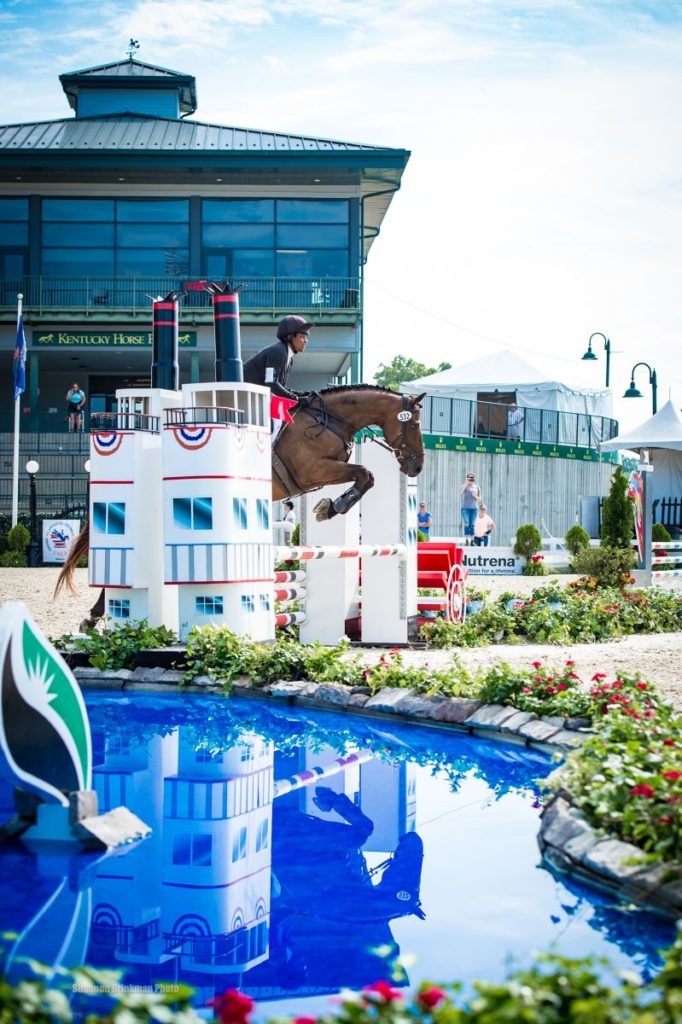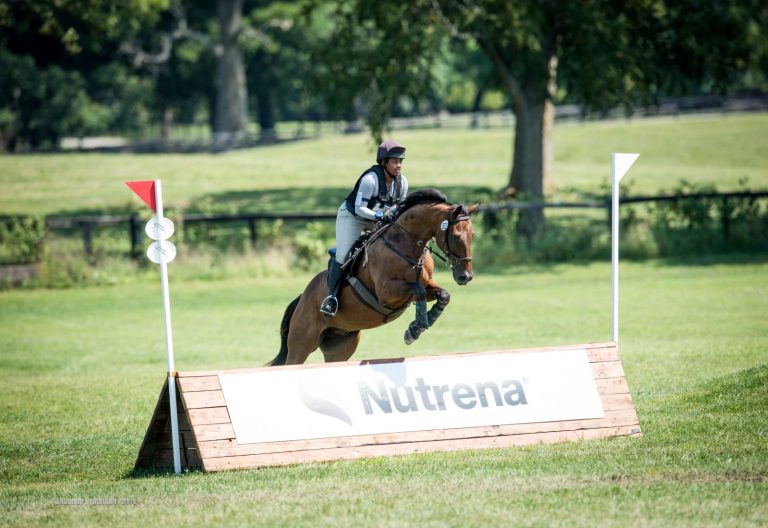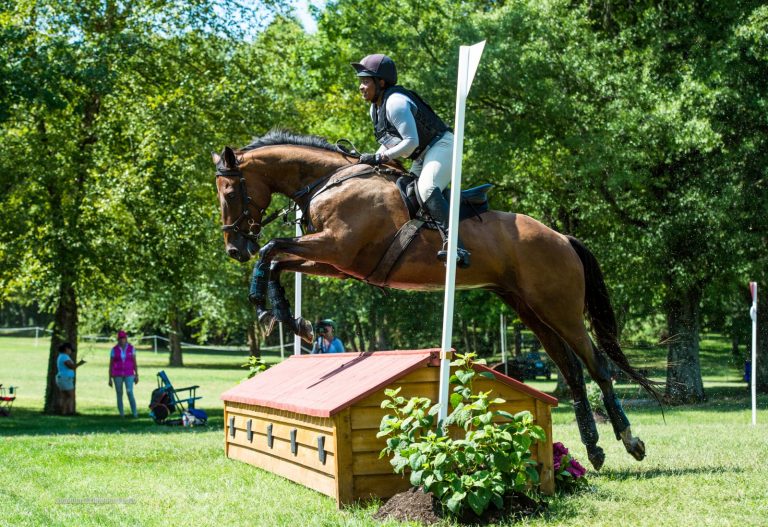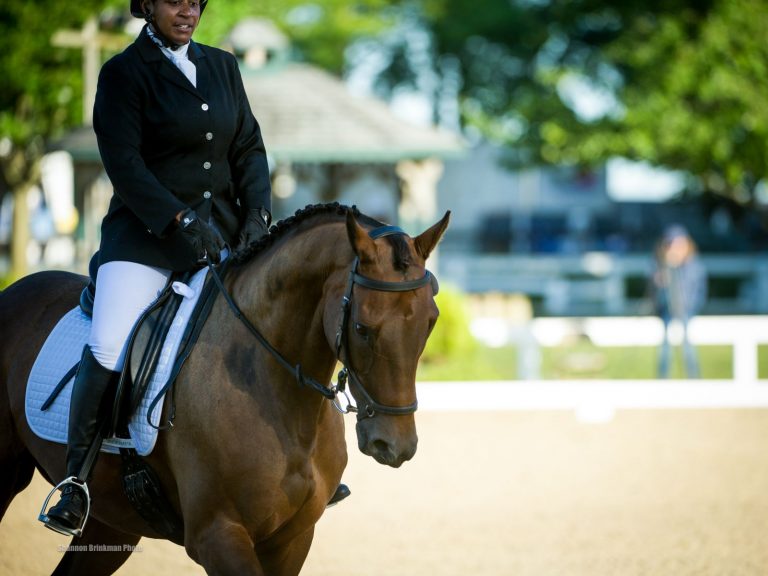In summer 2020, we launched a 1st Annual $5,000+ Diversity Scholarship with the support of generous donors, inviting minority equestrians to contribute to the discussion of diversity and inclusion in equestrian sport. It is the mission of this annual bursary, which we intend to expand in coming years, to call for, encourage, elevate and give a platform to minority voices in a space where they are underrepresented.
How do we build a more diverse, inclusive and accessible sport? In the coming weeks, we will explore this question alongside many of the 27 Scholarship recipients as they share with us their essays in full. Collectively, their perspectives coalesce into a body of work that will no doubt help inform a viable path forward for equestrian sport, and we are committed to connecting their actionable ideas with the public as well as leaders and stakeholders of the sport.
Today we welcome Helen Casteel. More voices: Lissette Williams | Christopher Ferralez | Malachi Hinton | Mitike Mathews | Katherine Un | Muhammad Shahroze Rehman | Dana Bivens | Leilani Jackson | Julie Upshur | Aki Joy Maruyama | Jen Spencer | Jordyn Hale | Dawn Edgerton-Cameron | Madison Buening | Caden Barrera | Deonte Sewell | Anastasia Curwood
 Helen Casteel on Unapproachable at the 2019 American Eventing Championships. Photo by Shannon Brinkman.
Helen Casteel on Unapproachable at the 2019 American Eventing Championships. Photo by Shannon Brinkman.
I was very much on the fence about submitting this essay. Like many others, I thought the request for members of one racial group to help another racial group overcome their own biases to make horse sport more diverse for a nominal one-time benefit leaned more towards self-seeking than genuine. Like many other Black people, I am tired. I am tired of watching Black people be murdered by police officers that are sworn to protect them. I am tired of constant streams of stories about how Black people are persecuted for being present in spaces some white people don’t think they belong in. And as much as I appreciate the outpouring of recognition of the centuries worth privilege that my white friends and neighbors now know they have enjoyed, it also exhausts me. As Damon Young wrote in his excellent New York Times op ed, “You learned yesterday what white privilege means? Great! Welcome to 1962.”
I consider myself very fortunate in my experiences as a Black woman in the horse world and specifically as an Eventer. I’ve always ridden at racially diverse barns and am based now at a place where I’ve only felt welcome and safe as I train and compete. Have white people looked at me and wondered what I was doing on or near a horse? Yes. Being the one that looks different from everyone else is something I’ve gotten used to but I’m lucky to not have to worry too much about it. Unfortunately not all other BIPOC in equestrian sport have been as lucky as I have been. So, I took a breath realized I actually had something to say.
 Helen Casteel on Unapproachable at the 2019 American Eventing Championships. Photo by Shannon Brinkman.
Helen Casteel on Unapproachable at the 2019 American Eventing Championships. Photo by Shannon Brinkman.
Just about every year the topic of how to expand eventing’s reach and participation to the larger public comes up along with plenty of handwringing about how we are too small, exclusive, and elitist. We are now having those same types conversations now about how to attract BIPOC. I read every article I find plus all the comments and always think to myself that each think article has the same flaw. There is this singular focus on how to make ‘them’ come to ‘us.’ This is completely backwards. There is no rule change, expansion in television coverage or clothing rule change that will magically grow our sport. A quick story. Years ago I was watching the Kentucky Derby on television with a crowd of horsey and non-horsey people. It was an unusually large field the shot of the horses galloping together through the first turn was beautiful. An older non-horsey man standing next to me breathed, ‘Wowww’ eyes wide and mouth open as he watched the horses take the first turn. The point is that people love horses, and I believe that there is something very primal that just about every human feels when they see a person riding a horse; especially riding a galloping horse. The sport is not confusing or hard to follow. It doesn’t need to fixed or altered to encourage more participation by BIPOC, or anyone for that matter. We need to go out and invite people to us.
Unfortunately many Black families lack the household wealth to participate in expensive horse sports (white household median wealth is $171,000 vs. Black household median wealth of $17,600) so there is an overall assumption that people of color and Black people specifically just aren’t exposed to horses. However there are still many that ride in Western sports like barrel racing, team penning, steer wrestling, calf roping and are members of trail riding clubs. Historically, this makes sense. As the West was being ‘settled’ after the Civil War, it is estimated that 1 in 4 cowboys were Black. However this history has been whitewashed so now most Americans’ visual reference of a cowboy is John Wayne and the Marlboro man. If this is news to you, spend a minute Googling Bill Pickett and Bass Reeves. If you don’t follow Black Reins on Facebook then you should get there quickly.
 Helen Casteel on Unapproachable at the 2019 American Eventing Championships. Photo by Shannon Brinkman.
Helen Casteel on Unapproachable at the 2019 American Eventing Championships. Photo by Shannon Brinkman.
Expanding eventing’s reach to include BIPOC and other horse enthusiasts that ride outside of our sport or are unfamiliar with horse sport in general can begin with basic outreach, but professional riders and leadership have to be more proactive about taking the first step. What would the impact be if a professional rider regularly visited an area riding school to teach a few lessons or lecture about horse care and management? What would the impact be if a professional rider personally invited riding school students to a horse trial or Championship to introduce them to the competitive side of our sport? What would the impact be if US Equestrian Federation leadership encouraged the above by facilitating these new relationships and supported their growth? Would every single person immediately become an active participant in eventing?
Of course not, but you can guarantee that awareness about our sport would be raised and enthusiasm would grow with consistent effort from our leaders and ourselves. In 2015, British show jumper Ben Maher visited the Ebony Horse Club in Brixton, London. He spent his day doing the above, and I am sure it was a day that no one has forgotten. I have no idea if experiences like these happen regularly in the UK or US, but I’m guessing not. I hope I am wrong. I’m pretty sure I’m right. Kids that don’t have the means to event when they were young would always remember the sport and the people that gave them their time and may come back to it as adults. Or they may be in a better position as adults so their children will be able to actively participate and be encouraged by a parent that grew up loving the sport.
 Helen Casteel on Unapproachable at the 2019 American Eventing Championships. Photo by Shannon Brinkman.
Helen Casteel on Unapproachable at the 2019 American Eventing Championships. Photo by Shannon Brinkman.
That’s exactly what happened with me. As a teenager in Massachusetts, I followed a friend to an area barn and started taking riding lessons. One weekend, our instructor piled us into her car to go watch competition at Groton House Horse Trials. I was immediately hooked but completely unable to participate in any riding activity other than the occasional lesson. Some 20+ years later I now actively compete with my own horse, and I also volunteer regularly. We are active competitors and have completed Championships like the Waredaca Novice 3-Day Event and the 2019 American Eventing Championships. Along the way has been experience gained with my regular coaches Stephanie Kohr and Carolyn Del Grosso, also Gretchen Butts, Kelley Williams, Stephen Bradley, Eric Smiley and Jimmy Wofford. Earlier this year, we were lucky to snowbird it in Florida for a few weeks. The point is, it took a few years but I’m here!
I am very lucky in my situation but the lack of a substantive diversity outreach program and basic representation for everyone else has always troubled me. After the Civil War and during Reconstruction, Frederick Douglass was the most photographed Black man in America. He used photographs of himself and other Black people to fight against a proliferation of racist caricatures depicting Black people as simple and unable to control themselves. He knew that no law could change minds but photos showing the humanity and beauty of Black people were the best alternative to what was in the media. Right now when I open an equestrian magazine, I usually see nothing but pale faces. You all literally can’t see us.
It is lovely that Eventing Nation has made this scholarship opportunity available and I hope it renews every year. However real change will only happen when white people truly prioritize diversity and representation efforts. This has to become your problem to solve.
Nation Media wishes to thank Barry and Cyndy Oliff, Katherine Coleman and Hannah Hawkins for their financial support of this Scholarship. We also wish to thank our readers for their support, both of this endeavor and in advance for all the important work still to come.
Get involved! Helen is right to be frustrated. It is very unfortunate that the burden of emotional labor has fallen, and continues to fall, on BIPOC persons to explain and problem-solve. What we can do, as a community, is say, “No more.” We can listen, learn and hold ourselves and one another accountable for creating — and embodying — change.
Helen recommends reading “Reflections From a Token Black Friend: On structural racism, implicit bias, and what white people do (and don’t) say” by Ramesh A. Nagarajah. In this powerfully insightful and honest essay Ramesh talks about what he describes as “the covert nature of the new breed of racism,” which took the author well into his adulthood to fully unravel:
“The length of my journey makes me inclined to be more patient with others in this process, as it’s taken me this much time to wake up. We should all be reasonably patient with one another, but I would encourage individuals to not be patient with themselves and to treat these issues with the urgency they deserve.”
Are you treating these issues with the urgency they deserve? In addition to listening to and learning from minority voices, many of these essays have included a postscript about how you can directly take action, such as educate yourself on Black equestrian history, support our LGBTQIA+ community, break through language barriers, support an urban riding program or launch an outreach initiative of your own, demand diverse representation in marketing communications, donate riding clothes/gear, support youth initiatives like 4-H and Pony Club as well as intercollegiate/interscholastic riding programs, utilize social media for social change, call out racism when you see it, volunteer and support volunteers, write/email/call equestrian governing bodies, address immigrant labor problems, complete SafeSport training, support retailers that support diversity, and more.
This is OUR problem to solve, and the change must start within each of us. From Ramesh’s essay:
“I will never turn my back on the black community. You’ll bump our music and rep our athletes, but will you stand with us when it’s not convenient? The pain is real. The stories are real. Our call for help is real. My uncle posted on Facebook yesterday, ‘When the dust settles, I wonder if anything will actually change?’ To be honest, I’m not sure how quickly or how much things will change. But I know that one thing is directly within our individual control. You can celebrate black lives by making a choice to inquire about them, to educate yourself, and to question many of the norms around us. You no longer have the excuse of being unaware of your own ignorance. I’d reword my uncle’s post to a question that we should all ask ourselves: ‘When the dust settles, I wonder if I will actually change?’ “
